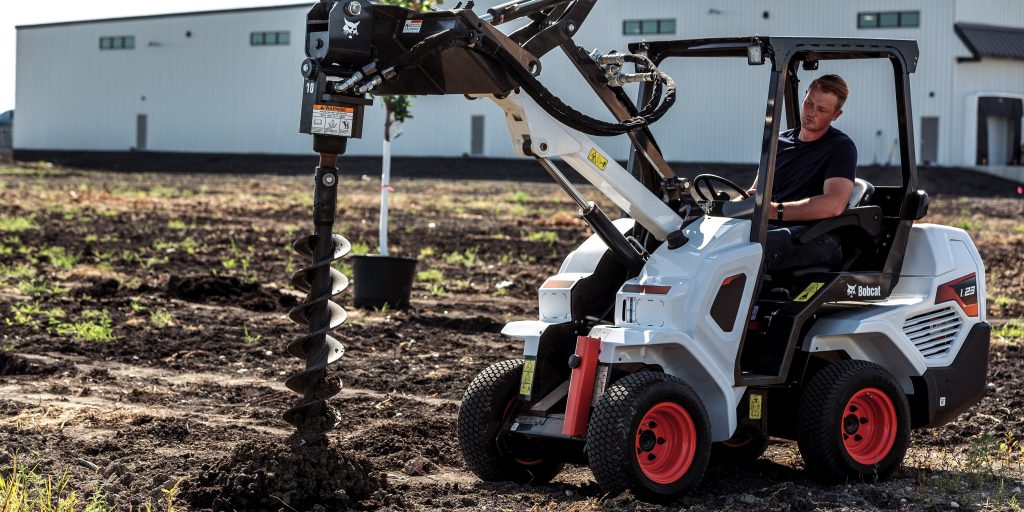Name brand on a budget: Local governments can be equipped for success with cooperative pricing
Streamlined isn’t the first word that comes to mind when discussing procurement practices—if it even comes to mind at all. Behind shoestring budgets, the cumbersome process is one of the biggest gripes agencies have. Securing quality equipment and services at the best possible price with a traditional procurement model takes a significant amount of time and effort. In addition to the man-hours required for research and drafting request for proposals (RFPs), agencies can spend weeks waiting for a bid to move through all the required steps before issuing a purchase order (PO) With markets, contractors and society in general moving at a much faster pace, these bureaucratic delays can quickly become a hindrance to efficient management.
To minimize roadblocks that might negatively impact operations, some procurement departments work with cooperative purchasing groups. These partnerships save valuable resources by streamlining the procurement process and offer agencies increased buying power. Additionally, cooperative contracts are attractive to top-tier manufacturers, making it easier for agencies to purchase the name-brand equipment they want at a price point they can afford.
Streamlined purchasing
Working with a cooperative purchasing group basically allows an agency to move directly from need to PO, saving dozens of man-hours and weeks of waiting. That doesn’t mean the traditional procurement method isn’t followed, though.
Cooperative groups like Sourcewell and NASPO serve specialized industries—whether that’s local governments, educational institutions, non-profits, etc. A deep understanding of the institutions they serve allows them to identify and proactively pursue contracts that will meet almost all operating needs.
Once needs are identified, cooperative purchasing groups get to work developing RFPs and invitation for bids (IFBs) for national competitive solicitations and vetting manufacturers and contractors to ensure the highest quality products and services. Like other types of cooperatives, purchasing co-ops use collective buying power to competitively solicit better equipment and service contracts. With the buying power of multiple agencies—up to tens of thousands in some cases—cooperative groups can secure competitive solicited contracts with top-tier manufacturers that often provide better terms than alternative procurement methods. The resulting contract is available to participating agencies free of charge.
By taking on more time-consuming aspects of the procurement process, purchasing co-ops significantly reduce man-hours for participating agencies for greater project efficiency. Additionally, unlike traditional single-use contracts, cooperative purchasing contracts often last for several years—up to five in some cases—allowing institutions to take advantage of a contract more than once. In addition to continued time savings, this can be a great help during budgeting sessions.
Manufacturer buy-in
From the manufacturing side, the nationwide nature of and longer duration offered by cooperative contracts are very attractive. That’s not to say manufacturers won’t respond to a single-use RFP from an individual agency, but, like anyone else, they’re looking to streamline whenever possible. Responding to one national RFP greatly increases efficiency, and the longer duration provides an element of stability not offered by one-off opportunities.
However, not every manufacturer can take advantage of cooperative purchasing contracts—resulting in a win for government agencies. Ensuring access across the entire country, and sometimes all North America, requires an extensive dealer network and top-notch manufacturing output. Because of this, cooperative procurement contracts are often awarded to big-name manufacturers with the necessary reach and coast-to-coast support. Combined with more favorable terms thanks to increased buying power, this gives participating agencies access to the name-brand equipment they want at a price point they might not have been able to negotiate on their own.
Dealer approved
Despite their national footprint, cooperative purchasing contracts are still fulfilled locally, limiting the number of parties involved and keeping investments in the community. With cooperative contracts, an agency simply must approach their local dealer, acquire the equipment they need and complete the purchase. The variables are pre-negotiated, saving time and effort on both sides and allowing dealers and government agencies to establish a more traditional customer/seller relationship without the stress of RFPs and long bidding windows. Most dealers are already aware of the contracts pertaining to their brands and models, so learning more is as simple as stopping by the lot to discuss equipment needs. Additionally, working with local dealers ensures equipment, parts and services can be handled in town providing faster turnaround for increased efficiency.
Equipped for success
For many government agencies, finding ways to streamline operations and stretch budgets is paramount. Reducing workloads and wait times with cooperative purchasing just makes sense. Providing the durable, name-brand equipment crews want is just the icing on the cake.
Reaching out to local equipment dealers or working with cooperative purchasing groups directly can help determine the overall benefit for a particular organization. Manufacturers with dedicated government sales departments can also offer valuable insight. Before the next budget cycle begins, take time to review available options. It’s likely there’s a cooperative purchasing contract with the name-brand equipment crews want that won’t blow the budget.
Randy Fuss serves as the director, government accounts for Doosan Bobcat and Bobcat Company in North America. Fuss leads the North America Government Accounts team and is responsible for the execution of the overall SLED (State, Local and Education) and Federal sales and marketing strategy for the government sales division. He has more than 15 years of experience serving government customers with products, contract solutions and procurement strategies to solve government challenges.




















